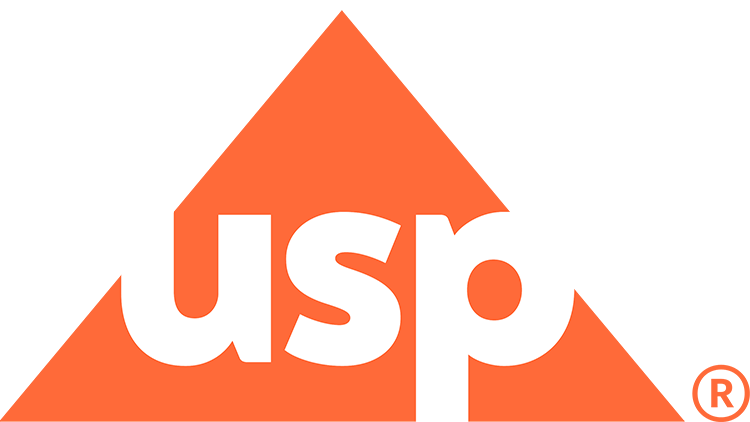
A Pharmacist’s Guide to Quality Supplements

The United States Pharmacopeia (USP) offers the industry’s most comprehensive auditing and testing program for dietary supplements with its USP Verified Mark.
Dietary supplement use is at an all-time high in the US, and the market continues to grow.1 According to top-line data from a 2023 Council for Responsible Nutrition report, 74% of US adults take supplements and 55% consider themselves regular users.2 Yet, many consumers do not fully understand the dietary supplement regulation process, the role of third parties in verifying product quality or the importance of choosing a third-party verified supplement.
Since 1994, dietary supplements have been regulated as a category of foods. Unlike medicines, dietary supplements do not require approval from the FDA before they are sold to the public. This means that for most dietary supplements sold in the United States, low-quality products are not discovered until after they reach and are consumed by the public.
The rising popularity of dietary supplements raises concern for several reasons. For one, increased consumer demand and low barriers to market entry have allowed more manufacturers and suppliers to create and sell low-quality supplements directly to consumers, both in-store and through online marketplaces. Recent product recalls reinforce the presence of these substandard, potentially dangerous products—and these are only the ones that we know about.3 Paired with rampant misinformation online, the dietary supplement marketplace can be confusing for patients who lack information or misunderstand what defines a quality product and how to identify one.
It is essential that patients can rely on health care practitioners to provide effective, unbiased guidance on how to choose quality supplements. Luckily, pharmacists—who have frequent interactions with patients and are one of the most accessible health care professionals, with almost 90% of US adults living within 5 miles of a community pharmacy—are perfectly positioned to support patients in making well-informed dietary supplement purchases.4
Value of Third-Party Verification
According to a representative survey of licensed, practicing pharmacists, physicians, dietitians, nutritionists, and nurse practitioners, the most important considerations when recommending a dietary supplement to patients are product quality, ingredient list, and quality assurance marks or seals. These marks or seals are awarded to products that pass quality assurance programs conducted by independent third-party organizations that test and verify products. Manufacturers and suppliers can voluntarily participate in a third-party program to ensure that a product’s label matches the contents of its bottle, while demonstrating commitment to manufacturing and product quality to health care practitioners and consumers.
The United States Pharmacopeia (USP), an independent, third-party organization dedicated to protecting public health, offers the industry’s most comprehensive auditing and testing program for dietary supplements, with its USP Verified Mark ranking as the #1 recommended seal by health care professionals to their patients (Dietary Supplement Verification Program [DSVP] Brand Tracker from April 2023, using a health care professional sample size of 299 [unpublished]). USP’s DSVP is designed to help companies achieve and maintain quality through a rigorous multi-step approach. As the trusted gold standard for verifying the quality of dietary supplements, pharmacists can have peace of mind in recommending products that are USP Verified.
USP’s Product Finder
To assist pharmacists who are looking for USP Verified products to recommend to patients, USP has created a searchable, interactive product finder, which features over 150 dietary supplement formulas, including melatonin, multivitamins, prenatal vitamins and probiotics. The product finder can be accessed on
When using the product finder, pharmacists can search for specific products or filter by delivery forms or brand names to ensure they are providing patients with recommendations for quality supplements that do not contain harmful contaminants. Pharmacists should inform their patients that purchasing USP Verified products is the best way to help ensure that what’s on the label is what’s in the bottle.
About the Author
Michael Rashed, MBA, is the director, non-pharma programs at United States Pharmacopeia (USP).
REFERENCES
- Total U.S. dietary supplements market size in 2022, 2023, and 2031. Statista. February 2024. Accessed July 11, 2024. https://www.statista.com/statistics/828481/total-dietary-supplements-market-size-in-the-us/
- Three-quarters of Americans Take Dietary Supplements; Most Users Agree They are Essential to Maintaining Health, CRN Consumer Survey Finds. News Release. October 5, 2023. Accessed July 11, 2024. https://www.crnusa.org/newsroom/three-quarters-americans-take-dietary-supplements-most-users-agree-they-are-essential
- Recalls, Market Withdrawals, & Safety Alerts. FDA. Updated July 11, 2024. Accessed July 11, 2024. https://www.fda.gov/safety/recalls-market-withdrawals-safety-alerts
- Berenbrok LA, Tang S, Gabriel N, et al. Access to community pharmacies: A nationwide geographic information systems cross-sectional analysis. J Am Pharm Assoc (2003). 2022;62(6):1816-1822.e2. doi:10.1016/j.japh.2022.07.003
Newsletter
Stay informed on drug updates, treatment guidelines, and pharmacy practice trends—subscribe to Pharmacy Times for weekly clinical insights.


























